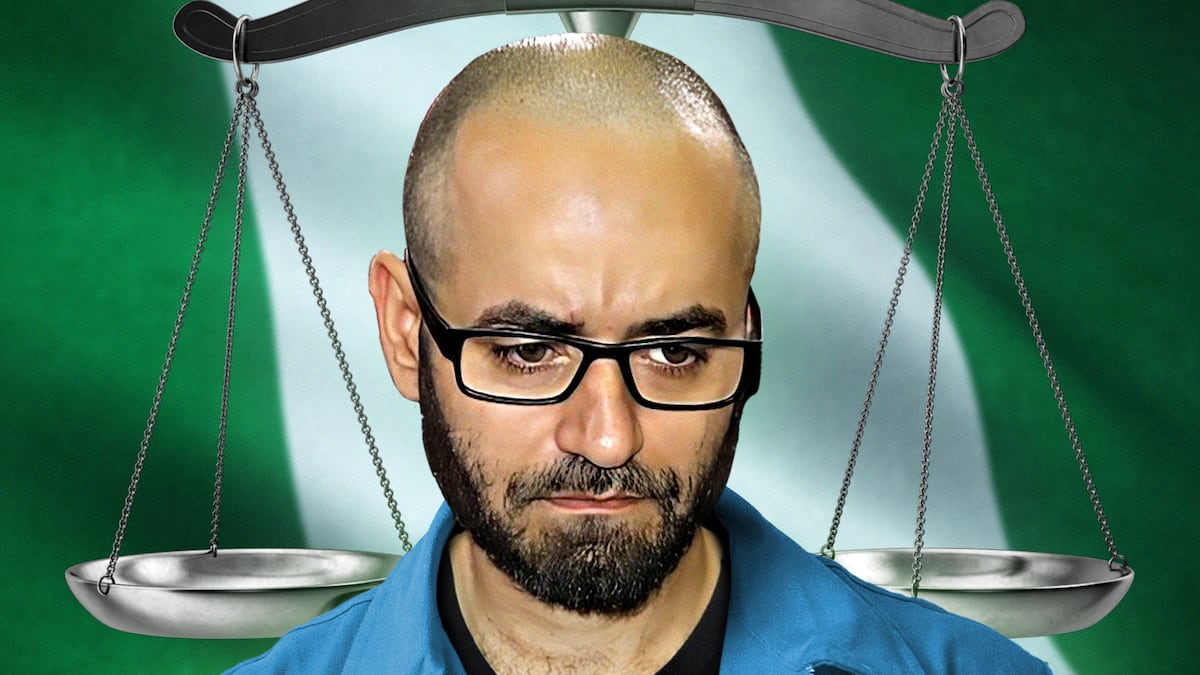- An ailing Tigran Gambaryan had been girding for a lengthy trial.
- Nigerian prosecutors are still charging Binance with money laundering.
- Dramatic day in court ends eight-month ordeal for Binance compliance exec.
Prosecutors in Nigeria on Wednesday withdrew criminal charges filed against Tigran Gambaryan, the Binance executive who has been incarcerated in the African nation since February.
In a court hearing, the lawyer representing Nigeria’s Economic and Financial Crimes Commission said Gambaryan could not be prosecuted for allegedly unlawful activity at Binance because he was just an employee, according to proceedings monitored by DL News.
Justice Emeka Nwite accepted the withdrawal of the government’s case. According to a person familiar with the case, Gambaryan has been released from custody but it is unclear whether he has arrived at the US embassy in Abuja.
It’s unclear whether Gambaryan, a US citizen, was immediately released and permitted to visit the US embassy. With no other charges against him, it would appear he should be free to return to the US as soon as he is able.
The EECC did not drop its money laundering case against Binance, which has denied wrongdoing. That trial is scheduled to commence in November.
Eight-month ordeal
The dramatic decision on Wednesday appears to bring an end to an eight-month ordeal for Gambaryan, a 40-year-old former US federal agent who heads Binance’s financial crime compliance team.
It also comes as Gambaryan has been coping with a number of health problems, including an injured back and malaria.
It appears that prosecutors, after months of denying Gambaryan’s health was a factor, finally took his medical condition into consideration. Dele Oyewale, a government spokesman, told The New York Times he was being released on “humanitarian grounds.”
Last week, the Binance man was not well enough to come to court for a hearing in his trial.
Ever since Gambaryan and a colleague, Nadeem Anjarwalla, were arrested in Nigeria’s capital, Abuja, in February, Binance and Gambaryan’s famly have been pleading with the authorities to drop what what called a trumped up case against him.
In June, two members of the US House of Representatives visited Gambaryan in Kuje Prison in Abuja and reported that he was suffering from poor health. They called on Nigeria to release him immediately.
Biden Administration presses Nigeria
During the United Nations General Assembly in New York in September, Linda Thomas-Greenfield, the US ambassador to the international body, came to his aid as well.
She told Yusuf Tuggar, Nigeria’s foreign affairs minister, that resolving Gambaryan’s plight was important for US relations with Africa’s most populous nation.
Gambaryan was swept up in a bitter dispute between officials at the EFCC and the Nigerian Central Bank and Binance, the world’s top crypto exchange.
At the beginning of the year, Nigerian authorities blamed Binance for tanking its fiat currency, the naira, by allowing large-scale manipulation of a digital version of the currency on its site.
Unlicenced in Nigeria, Binance was exposed, so the company dispatched Gambaryan from his home base in Atlanta, Georgia, to Abuja for talks with government officials.
Gambaryan was joined by Anjarwalla, a British lawyer who was Binance’s top officer in Kenya. No sooner did the two men land in Abuja and engage with officials than they were placed under house arrest and their passports were seized.
In March, Anjarwalla managed to elude his guards during a prayer service at a mosque and, using a Kenyan passport he had kept hidden, flew out of Nigeria.
Nigerian officials arranged to have Interpol issue a Red Notice for Anjarwalla, but he has not surfaced since his escape.
Meanwhile, Gambaryan felt the full force of Nigeria’s legal system. He was charged with money laundering and tax evasion as was Binance, and he was imprisoned pending a trial that did not commence until May.
Denied bail
Gambaryan pleaded not guilty and was denied bail; the tax evasion charge was eventually dropped.
From the outset, Mark Mordi, Gambaryan’s lawyer, called the case against his client a “state-sponsored hostage taking.”
He urged prosecutors to recognise that Gambaryan was a compliance executive with no strategic decision-making authority for the company, and it was wrong to hold him responsible for Binance’s activities in Nigeria.
On Wednesday, prosecutors finally agreed.
Updated on October 23 to report that Gambaryan has been released from custody.
Osato Avan-Nomayo is our Nigeria-based DeFi correspondent. He covers DeFi and tech. To share tips or information about stories, please contact him at osato@dlnews.com.


